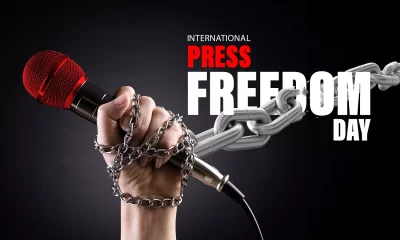The Nigeria Customs Service, NCS, has promised importers of fish products and other perishable cargoes of quick and timely clearance of the goods so as to retain the quality of such goods at the point of sale.
Giving this assurance when the Director for Central and West Africa, Norwegian Seafood Council, visited the Comptroller of the Tin-Can Island Customs Command, Deputy Comptroller in charge of compliance and enforcement, Mr Chidera Nnadi, said that the Command will give importers of such cargoes preference in the course of clearing their goods.
Nnadi also said that the import duty of fish is fixed adding that there is nothing Customs can do about it.
He, however, explained that apart from the duty rate, there are other factors that can be changed like facilitating the payment process of such duty.
He stated: “There are other factors we can change, ensuring that the supply chain is made so easy that demurrage is avoided. “These are an avoidable cost that we can easily take care of and managed.
“Then we can also try to remove other tariff barriers that have nothing to do with duty rate like the issue of human interference in the supply chain process.
“Trying to cut down the number of interventions that are not actually desired in the entire supply chain process.
“These I promised to work on whenever such opportunities arise, we will not fail to deploy it.
“We will also try to encourage other stakeholders in the system to respect such opinion whenever it arises knowing that beyond people like you, there are other people that benefit from the entire chain.
I won’t say that every opportunity I have to assist the Nigerian-Norwegian seafood trade, I will do it.” In his reaction the Director, Central and West Africa of the Norwegian Seafood Council, Mr Trond Kostveit noted that the state of the road is a major factor that is impacting on the quick delivery of cargoes.
Kostveit opined that if cost incurring factors are taken care of, it will further reduce the cost of the cargo and the consumers will, in turn, pay less than they are currently paying.

 Health1 week ago
Health1 week ago
 Latest1 week ago
Latest1 week ago
 Football1 week ago
Football1 week ago
 Latest1 week ago
Latest1 week ago
 Education5 days ago
Education5 days ago
 Crime1 week ago
Crime1 week ago
 Comments and Issues5 days ago
Comments and Issues5 days ago
 Comments and Issues5 days ago
Comments and Issues5 days ago
